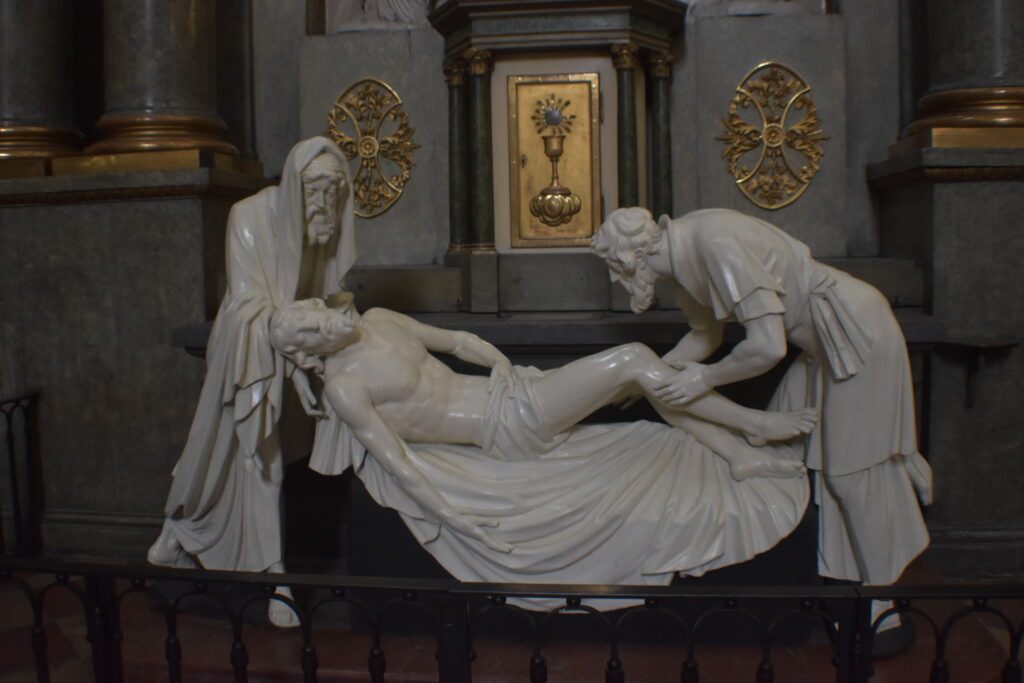People have forgotten space-time.
It’s time to rediscover it.

Summary: The purpose in this letter is not to lecture on the church, but to show how thinking has changed in the last 2 millennia. It’s not that we think better or are smarter, but that we think differently. We no longer face starvation; we live apart from nature and see less meaningless death. In many ways, our lives are artificial. We no longer seek understanding; we seek pure knowledge to be used for profit. We have become meaningless.
The art of intelligence (And intelligence is an art) is not the simple collection of information. In the past, knowledge had to have meaning.
Meaning does not exist in knowledge today, and it has destroyed science. Scientists today try to own it… that is, freeze it in time so they can sell it. Knowledge is copywritten and is dispensed in dribs and drabs by people who profess to own it. This is their equity so to speak.
Today, science has relegated space-time to the study of physics.
The early scholars obsessed over space-time.
The low arts were called the Trivium. These were rhetoric, logic and grammar.
But the high arts, the Quadrivium, were space-time. The first was arithmetic, which was numbers in the abstract. The second was geometry, which are numbers in space. (Flat space) The third was music, which are numbers in time. And the last was astronomy, which are numbers in space-time.
It was only after the scholar wannabe mastered these that they were they allowed to become a master which meant studying Law, Medicine or Theology.
These arts were later transformed into what we now know of as humanities, which led to the things that have destroyed science. Nihilism and its bastard son, atheism.
Darwin’s biggest threat was not the Church.
To be sure, natural election was antithetical to biblical thought, but the early church wasn’t Bible based. The Catholic Church was based on Aristotle, Socrates, and the ancient philosophies. Darwin’s biggest detractors were other scientists.
Although most natural scientists agreed with Darwin’s theory of natural selection they vehemently disagreed with his theory in “The Decent of Man.” In my opinion, it was this theory that made him the greatest scientist of all time.
Darwin saw the world through observation of space-time, or as we call it today, systems engineering. Organisms live in duration space, in other words, organism and species space-time. Darwin never made small observations and expanded his theories outward, but looked at the collection of species understanding that they evolve together, even though they may compete.
The body is a system. Some organs evolve to meet environmental changes, and some devolve, becoming redundant, like nipples on a man. The heart in every species evolves into their own duration space, but in end it is a heart, evolved from an early common organ. Our decent from a common ancestor is our system.
It wasn’t theologians that expanded the Church, it was monks.
Contrary to religious babble, what kept “Christianity” alive was not the word, it was the monastery. The early monks were engineers, builders and farmers. They were Roman Catholics, and the Romans were the greatest builders in history.
Monks during the Dark Ages ran granaries, manufactured steel, farmed and started the earliest agricultural colleges. At the time of its destruction, Glastonbury was the most advanced steel plant in Europe. All the early hospitals were in monasteries, as well as libraries.
My point is that the earliest clerics were not theoreticians. They were applications engineers.
The protestant reformation wasn’t an act of reform it was an act of theft. But to understand how the monks prospered, you must understand their thinking. They took oaths of chastity and poverty. They took land nobody wanted, forests and swamps and created factories, farms, hospitals, and markets. They created the first legal, binding contracts and enforced them. They fed the starving and housed merchant travelers and their inventories.
They did this with a rigorous application of the Quadrivium and the Trivium. They took basic knowledge and applied processes.
They were the earliest systems engineers.
Every process has a meaning.
To the ancients’ finding meaning was the reason for discovery. Every system has a meaning, and that meaning is defined in space-time existing in an environment. It reacts as an astronomy, as music, as geometry and as arithmetic at different levels.
It lives and dies.
And in its essence, it cannot be learned, it must be experienced.